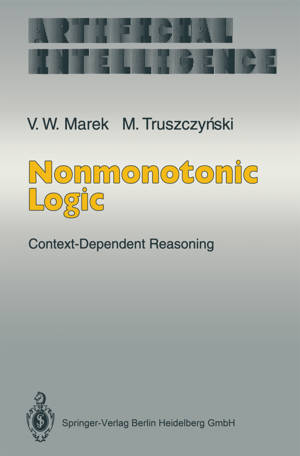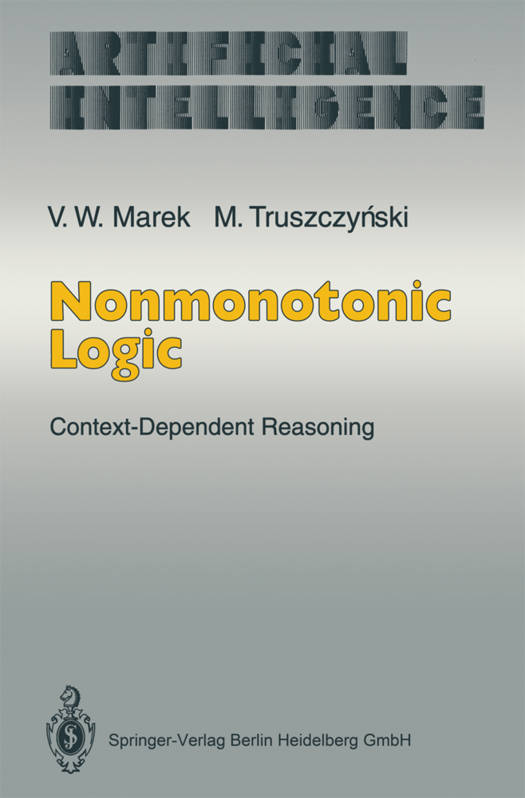
- Afhalen na 1 uur in een winkel met voorraad
- Gratis thuislevering in België vanaf € 30
- Ruim aanbod met 7 miljoen producten
- Afhalen na 1 uur in een winkel met voorraad
- Gratis thuislevering in België vanaf € 30
- Ruim aanbod met 7 miljoen producten
Zoeken
€ 158,45
+ 316 punten
Omschrijving
When I first participated in exploring theories of nonmonotonic reasoning in the late 1970s, I had no idea of the wealth of conceptual and mathematical results that would emerge from those halting first steps. This book by Wiktor Marek and Miroslaw Truszczynski is an elegant treatment of a large body of these results. It provides the first comprehensive treatment of two influen- tial nonmonotonic logics - autoepistemic and default logic - and describes a number of surprising and deep unifying relationships between them. It also relates them to various modal logics studied in the philosophical logic litera- ture, and provides a thorough treatment of their applications as foundations for logic programming semantics and for truth maintenance systems. It is particularly appropriate that Marek and Truszczynski should have authored this book, since so much of the research that went into these results is due to them. Both authors were trained in the Polish school of logic and they bring to their research and writing the logical insights and sophisticated mathematics that one would expect from such a background. I believe that this book is a splendid example of the intellectual maturity of the field of artificial intelligence, and that it will provide a model of scholarship for us all for many years to come. Ray Reiter Department of Computer Science University of Toronto Toronto, Canada M5S 1A4 and The Canadian Institute for Advanced Research Table of Contents 1 1 Introduction .........
Specificaties
Betrokkenen
- Auteur(s):
- Uitgeverij:
Inhoud
- Aantal bladzijden:
- 420
- Taal:
- Engels
- Reeks:
Eigenschappen
- Productcode (EAN):
- 9783540564485
- Verschijningsdatum:
- 3/11/1993
- Uitvoering:
- Hardcover
- Formaat:
- Genaaid
- Afmetingen:
- 156 mm x 234 mm
- Gewicht:
- 789 g

Alleen bij Standaard Boekhandel
+ 316 punten op je klantenkaart van Standaard Boekhandel
Beoordelingen
We publiceren alleen reviews die voldoen aan de voorwaarden voor reviews. Bekijk onze voorwaarden voor reviews.











